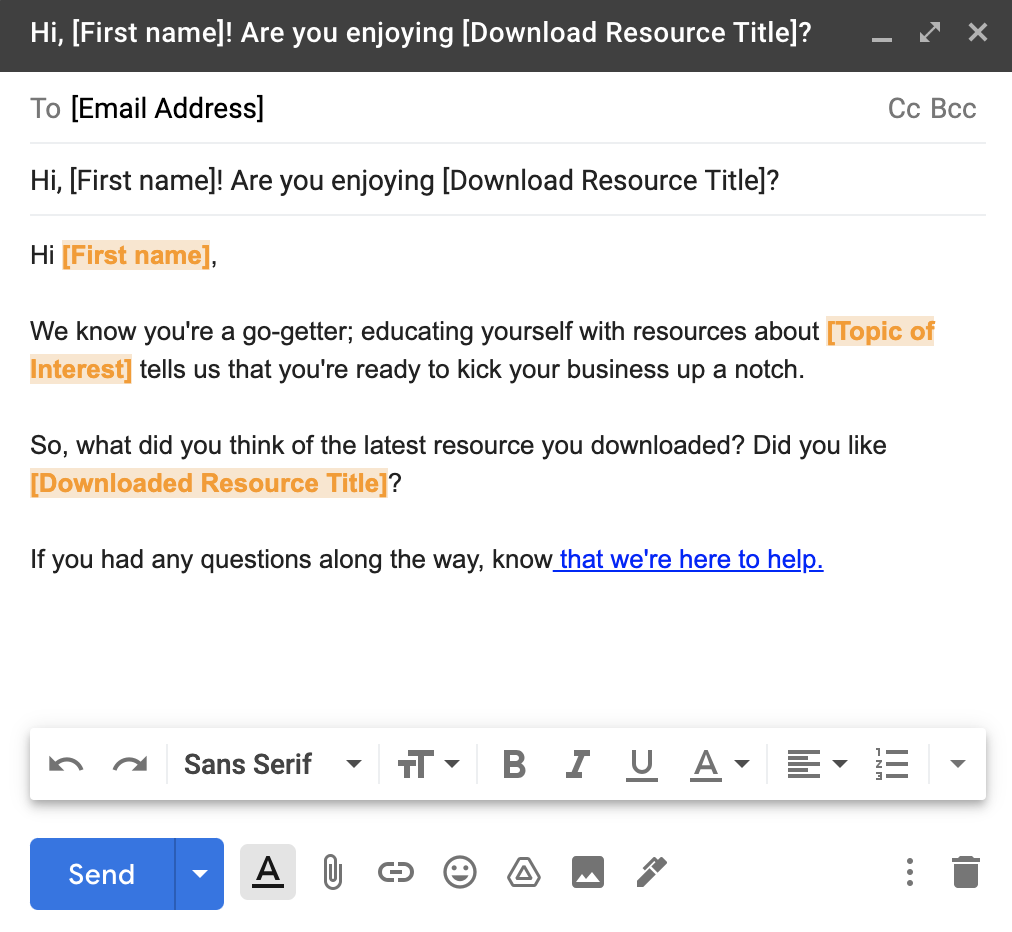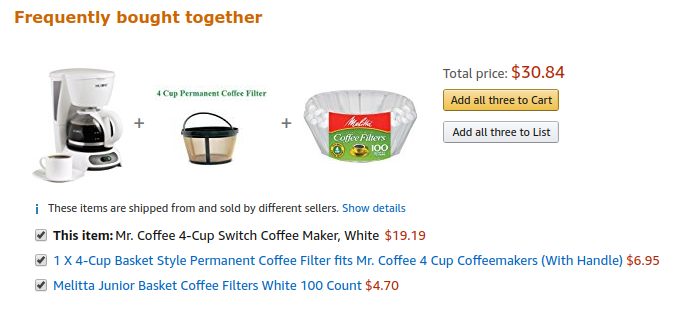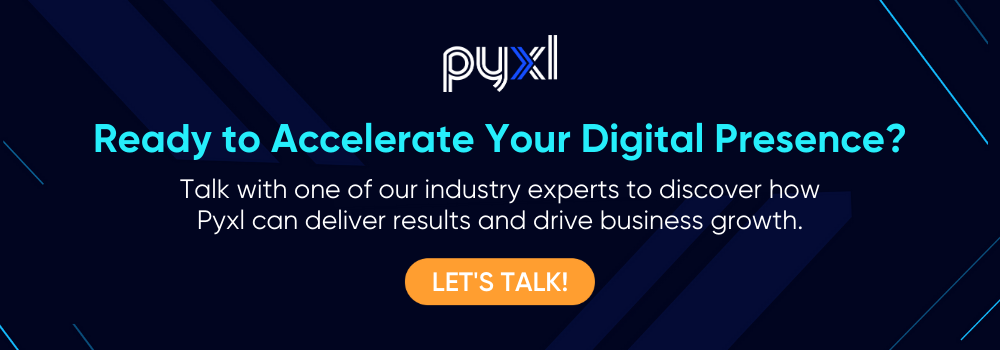How to Improve the Customer Experience with Automation
Customer experience expectations
Creating a positive experience for prospects and clients is one of the most important things your business can do. A contact’s experience with your business can greatly influence their decision to buy your goods or use your services. Companies lose around $62 billion each year because of poor customer experience. A totally satisfied customer contributes 2.6 times as much revenue as a somewhat satisfied customer and 14 times as much revenue as a somewhat dissatisfied customer.
One positive experience buyers seek is the ability to create a personal connection with your brand. Building relationships with customers strengthens customer loyalty and directly impacts revenue. 76% of consumers will buy from you over your competitors and 57% will spend more if they feel personally connected to your business.
However, the biggest obstacle to crafting a great experience for many businesses is the lack of time available. 76% of customers expect companies to understand their needs. This can be challenging for companies who want to deliver a valuable experience for their consumers but feel they don’t have the time to do so.
Incorporating automation tools and processes can enable you to create an outstanding experience for your customers without a major time or cost commitment.
What is customer experience (CX) automation?
CX refers to the touchpoints in which consumers interact with your brand such as through social media, your company’s website, or a customer service representative. Any technology which automates a customer’s routine task in order to improve customer interactions is referred to as integrating automation into the customer experience.
A customer experience automation system can share information with customers, help provide customer support 24/7 and provide a consistent user experience. With the help of automation tools, your team can provide valuable information to your leads and customers, resulting in a more powerful and consistent experience.
How to use automation to improve the customer experience
Personalization
Personalization is the ability to send tailored brand messages to specific prospects utilizing their individual prospect profiles. Ninety-four percent of customer insights and marketing professionals across multiple industries said personalization is “important,” “very important,” or “extremely important” for meeting their current marketing objectives. To better tailor the experiences you offer, you should analyze your data and analytics to understand each of your prospects and customers better.
Why personalization is important
Personalization is crucial to creating a connection between your company and potential customers. People want to be seen as an individual by your company instead of just a dollar sign or some contact in their database. Nearly three out of four customers will only respond to marketing messages if they are specifically targeted to them and their unique needs and motivations. There are a variety of ways to incorporate personalization into your marketing strategies, such as email personalization tokens, smart content, or smart forms, to deliver a relevant and customized experience per user.
Types of personalization and how automation can help
Email personalization
Whenever emailing potential and current customers, your emails should address them by name. Emails with a personalized subject line or message are more likely to be opened and clicked and can deliver six times higher transaction rates. Use personalized tokens that pull contact information stored in your CRM, like name or company, etc, previously collected from interactions like submitting a contact form. That way you can send automated personalized emails to a large list of contacts instead of having to address them individually and therefore saving you time in the end.
Note: Be sure to set a default value for your personalized tokens. The default value will be used in case someone doesn’t have that property identified in your CRM. That way you’re addressing them with “hi, friend” instead of “hi, first name” for example.
Example email with different personalization tokens:

Smart content
90% of consumers find custom content useful. Using smart content, marketers can display a variety of different messages or CTAs in emails, landing pages, web pages, etc. that target different groups of users. Instead of creating multiple assets for each segment of users, your team can save time by creating one deliverable that automatically adjusts the content displayed based on the criteria set. In addition, delivering customized content demonstrates the power that AI has in increasing conversions. By providing relevant and helpful information that meets their unique needs, goals, and questions about the industry, smart content can help users move down the sales funnel.
Smart forms
Smart forms are branded, custom forms that are used by businesses to automatically gather more information on your potential customers to help segment and target them further. There are a couple of ways to use smart forms to create a customized experience per user:
Based on a user’s answers to a previous question, the fields on your form can change in real-time to better gather relevant data on that contact, or prevent them from entering irrelevant information. For example, if someone were to identify they are a current customer or not, the dynamic feature on the forms could remove or display a field asking if they’d like to see a demo of their product.
If your user has filled out more than one form with your business, the smart forms can automatically display information that the user has already identified in previous interactions with your business to save time entering the same information twice. Or if someone had filled out a form gathering their company information, for example, your smart form could remove the company field completely and instead display a different field such as industry to further identify and segment each user.
Predictive analytics
In order to remain competitive, it is necessary to stay on top of trends and desires in the marketplace. Using AI and machine learning, predictive analytics provides insights based on algorithms or models that analyze past consumer behavior and predict future behavior.
This can be evident in Amazon’s suggestions, which show similar product recommendations based on the items your consumers have shown interest in or previously purchased. This type of automation tool can create a great customer experience for your users because you’re saving them time by researching and identifying items you think they’d enjoy, and it can lead to an increase in conversions because you’re directly sending them items they’ll likely purchase.

Sending the right messages to your contacts at the right time!
When it comes to email marketing, there’s no exact science to the number of emails it takes to convert a lead to a customer. However, the time of day you send your emails, the frequency you send them, and the targeted information you include in your emails do matter.
That’s a lot of customized emails! For many businesses, sending personalized emails manually to every customer at any time of the day is just not possible, or scalable. By using email automation scheduling software, your emails can be sent out at the right times of the day and frequency depending on where they are in the buyer’s journey and what you’ve determined they need to provide a great experience with your business. Review your open and click rates and try A/B testing your emails to determine the right send times and frequency for your contacts.
There are a variety of different automated messages that you can send to your contacts:
Automated emails throughout the buyer’s journey help to nurture your prospective clients. Sending them targeted emails based on their needs and interests helps open communication throughout the whole process and provides them with the information they need to eventually become loyal customers.
Another would be automating new client emails. These emails would automatically be sent to your contacts upon conversion thanking them for signing up and addressing the next steps. This continues the personal connection with your brand and does not leave them to wonder about the next moves.
Another example would be assigning team members internal notifications when to check in on clients and prospects. This makes the connection between your client and your company a priority.
Automated customer satisfaction surveys
The main goal for your business should be to ensure your customers are satisfied. Send customer satisfaction surveys to your customers regularly to gather feedback so you can continue to learn and provide them with the best experience possible. Through automation, customer satisfaction surveys are becoming easier as you can cater your questions to specific individuals through a path that changes based on the previous answer. This dynamic feature allows you to gather more relevant information about your different customer’s experiences and provide improvements that better cater to them.
Customer experience automation tools
Chatbots
The biggest automation tool that works to improve the customer experience around the clock is chatbots. A chatbot is an AI feature that allows a user to communicate with your business via automated messages on your website.
56% of people would rather message than call customer service. Chatbots like Drift or HubSpot Chat, provide an alternative for quick and easy communication with your contacts. This aids the customer experience by never allowing a customer to leave the website due to an unanswered question.
Chatbots are also functional 24/7 and work to connect customers during and after business hours. Website visitors are able to directly communicate with a customer service member to offer support, book a meeting, etc, making it a quick and convenient way for users to get the answers they need. And when it’s after hours, you can leave your chatbot on and provide users with an automated experience that resembles that of a real human. This allows contacts to have questions answered and convert even when no human representative is available.
Dynamic interactive videos
Mindstamp is an interactive video platform that provides a dynamic experience throughout the video based on selections and answers users provide. Platforms such as Mindstamp allow you to connect with your audience by providing interactive questions and buttons throughout the video to maximize their engagement. These interactive videos can create an automated personalized experience for each viewer based on their selections within the video.
Zendesk
Zendesk is a customer service software that works toward making customer service better through automation. The platform combines all your customer interactions into one easy-to-use platform. Answering questions or keeping track of service requests becomes easy and effective. Another feature of Zendesk is their community forums that can help create online communities around your company. This can strengthen and deepen customer relationships.
CRMs
CRM, also known as Customer Relationship Management, is a transformed and fine-tuned version of your physical address book and helps marketing and sales members better cultivate customer relationships. Many of these platforms provide automated tools like automated scheduling, sales ticketing systems, and communications tracking. One example of an excellent CRM is HubSpot which serves currently over 100,000 customers. HubSpot can also integrate with several other sales tools, including Salesforce. This integration allows for easier access to contact data. This means you can better understand your customers and personalize your messages and emails based on their previous interactions with your business.
Survey tools
Survey automation involves automating surveys via a survey workflow. Based on the answers to previous questions, the survey changes accordingly for the user. Through survey automation, pertinent information can be transmitted seamlessly and in a timely fashion. It is also possible to automate the process by setting up an automated survey to request a new customer’s feedback within 7 or 15 days of purchase. Platforms such as SurveyMonkey and Typeform work to provide this automation feature and can integrate with several CRMs to ensure your database is accurate and inclusive of all information provided from the surveys.
Partner with Pyxl
Your customers deserve to receive the best experience with your business and customer service automation allows your business to still provide your contacts with the best experience, even when your marketing and sales teams don’t have the time or ability to provide it themselves.
At Pyxl we’ll work with your business to figure out the best automation strategies and tools that fit your business needs now and in the future. Contact Pyxl today to see how we can help provide a great customer experience for your contacts no matter where they are in the buyer’s journey.
Updated: Mar 01, 2023
 Bonnie Winter
Bonnie Winter

 Kati Terzinski
Kati Terzinski Erin Murray
Erin Murray